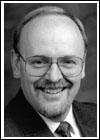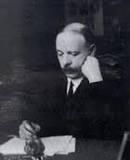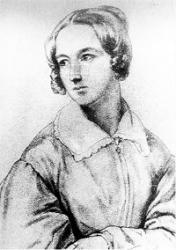Planning worship?
Check out our sister site, ZeteoSearch.org,
for 20+ additional resources related to your search.
- |
User Links
Person Results
W. G. Fischer

1835 - 1912 Scripture: Psalm 4:7 Composer of "[I have entered the valley of blessing so sweet]" in Sacred Songs and Solos William Gustavus Fischer In his youth, William G. Fischer (b. Baltimore, MD, 1835; d. Philadelphia, PA, 1912) developed an interest in music while attending singing schools. His career included working in the book bindery of J. B. Lippencott Publishing Company, teaching music at Girard College, and co-owning a piano business and music store–all in Philadelphia. Fischer eventually became a popular director of music at revival meetings and choral festivals. In 1876 he conducted a thousand-voice choir at the Dwight L. Moody/Ira D. Sankey revival meeting in Philadelphia. Fischer composed some two hundred tunes for Sunday school hymns and gospel songs.
Bert Polman
W. G. Fischer
Don Hustad

1918 - 2013 Person Name: Donald P. Hustad Scripture: Psalm 4:8 Arranger of "SLANE" in The Worshiping Church
Don Hustad
Jack Schrader

b. 1942 Person Name: Jack Schrader, 1942- Scripture: Psalm 4:8 Harmonizer of "SLANE" in Worship and Rejoice JACK SCHRADER (b. 1942), arranger, composer, conductor, vocalist, and organist/pianist, is past editor with Hope Publishing Company, retiring in January of 2009. His association with Hope began in 1978. A 1964 graduate of Moody Bible Institute of Chicago, where he majored in Voice and Organ, he also received the Bachelor of Music Education degree from the University of Nebraska (1966). Further studies in theology culminated in Jack's ordination by the Evangelical Free Church of America (1975). Born in St. Louis, Missouri, he now resides in Wheaton, Illinois, with his wife, Karen. They have three children, Beth, Jonathan and Joel, and currently three grandchildren.
Jack is the best selling choral composer in the Hope catalog. In addition to choral music Jack has published collections for keyboardists, instrumentalists and vocal soloists. He was a member of the editorial committee for Hope's most recent hymnal, WORSHIP & REJOICE (2001), in which he has 24 hymn credits. His music is heard in hundreds of churches across the country each Sunday, and he can be seen throughout the year as a guest clinician at choral reading sessions and workshops.
--www.hopepublishing.com
Jack Schrader
David Schwoebel

b. 1957 Scripture: Psalm 4:8 Composer of "COURTNEY" in Glory to God David Schwoebel is Minister of Music/Composer in Residence at Derbyshire Baptist Church in Richmond, Virginia. He is a graduate of McKendree College in Lebanon, Illinois and Southwestern Baptist Theological Seminary in Fort Worth, Texas, where he received a Bachelor of Arts in Voice and Organ Performance, and a Master of Church Music with an emphasis in Composition. Prior to beginning his ministry at Derbyshire in January 1997, David served churches in his hometown of Belleville, Illinois, Montgomery, Alabama, and Atlanta, Georgia.
As an ordained minister, David administrates and oversees a comprehensive music ministry of six choral organizations, four handbell choirs, and a 32-piece orchestra. His energetic, hands-on approach to ministry finds him working each week with people of all ages, encouraging and equipping them to discover and develop their varied musical talents and skills.
The MICHELLE hymn tune included in the 1991 Baptist Hymnal is named for David's wife, Michelle. The BRITTANY, ASHLEY, AND COURTNEY hymn tunes, named for their three daughters, and the ROSE MARY, HENDRICKS AVENUE, as well as an arrangement of IRBY hymn tunes, are included in the Celebrating Grace hymnal. The tunes COURTNEY and ROSE MARY are also included in Glory to God: The Presbyterian Hymnal.
--www.lorenz.com/Composers/
David Schwoebel
George Ratcliffe Woodward
1848 - 1934 Person Name: George Ratcliffe Woodward, 1848-1934 Scripture: Psalm 4:8 Author of "This joyful Eastertide" in Complete Anglican Hymns Old and New Educated at Caius College in Cambridge, England, George R. Woodward (b. Birkenhead, Cheshire, England, 1848; d. Highgate, London, England, 1934) was ordained in the Church of England in 1874. He served in six parishes in London, Norfolk, and Suffolk. He was a gifted linguist and translator of a large number of hymns from Greek, Latin, and German. But Woodward's theory of translation was a rigid one–he held that the translation ought to reproduce the meter and rhyme scheme of the original as well as its contents. This practice did not always produce singable hymns; his translations are therefore used more often today as valuable resources than as congregational hymns. With Charles Wood he published three series of The Cowley Carol Book (1901, 1902, 1919), two editions of Songs of Syon (1904, 1910), An Italian Carol Book (1920), and the Cambridge Carol Book
George Ratcliffe Woodward
Charles Wood

1866 - 1926 Person Name: Charles Wood, 1866-1926 Scripture: Psalm 4:8 Arranger of "THIS JOYFUL EASTERTIDE (VREUCHTEN)" in Complete Anglican Hymns Old and New
Charles Wood
Luise Hensel

1798 - 1876 Person Name: Luise Hensel, 1798-1876 Scripture: Psalm 4:8 Author (of German) of "Now the Light Has Gone Away" in Lutheran Service Book Text of "Müde bin ich geh zur Ruh" is printed in Lutheran Service Book, 2006 #887
=============
Hensel, Luise, daughter of J. J. L. Hensel, Lutheran pastor at Linum, near Fehrbellin, Brandenburg, was born at Linum, March 30, 1798, Though confirmed as a Lutheran in her fifteenth year, she gradually approximated to Roman Catholicism, and was formally received into that Communion, Dec. 7, 1818. During the remaining years of her life, she devoted herself mainly to the education of the young and the care of the sick. In 1874 she entered the Union of Daughters of Christian Love at Paderborn, and died at Paderborn, Dec. 18, 1876. (O. Kraus, 1879, pp. 204-211; Allgemeine Deutsche Biographie, xii. 1-3, &c.) Her best hymns were written before she was 23, and in proportion as she became an Ultramontane the poetical value of her productions declined. Her finest productions are distinguished by childlike simplicity, humility, resignation, and deep Christian love. They have won wide acceptance in Germany. The first two of those noted may be regarded as nursery classics.
A number of her hymns came into Clemens Brentano's hands as early as 1819, and were by mistake included as his in his posthumous works. A few were printed in F. Förster's Sängerfahrt, 1818, and a good many more in M. Diepenbrock's Geistlicher Blumenstrauss, Sulzbach, 1829. A complete edition of her hymns was published by Professor C. Schlüter of Münster as her Lieder at Paderborn, 1870 (4th ed., 1879).
i. Hymns in English common use:
i. Immer muss ich wieder lesen. [Holy Scripture.] This beautiful children's hymn on the Life of Christ as narrated in the Gospels, appeared in Diepenbrock, 1829, p. 265, in 7 stanzas of 4 lines (entitled "On the reading of Holy Scripture "); and in her Lieder, 1870, is dated Berlin,
1815. It is repeated in Knapp's Evangelischer Lieder-Schlatz, &, 1837, the Württemberg Gesang-Buch, 1842, &c. Translated as:—
Ever would I fain be reading. A good and full translation by Miss Winkworth in her Lyra Germanica, 2nd Ser., 1858, p. 24. It has been included in full in Psalms & Hymns, Bedford, 1859; Kennedy, 1863; Book of Praise for Children, 1881; and in America in Hatfield's Church Hymn Book, 1872, and others. In some collections it is abridged; and in the Unitarian South Place Collection, 1873, it begins, "Ever find I joy in reading."
Other translations are:—
(1) “O how sweet the wondrous story," by Mrs. Bevan, 1859, p. 142. (2) "In that book so old and holy," in Dr. H. W. Dulcken's Golden Harp, 1864, p. 25. (3) "Still I read, and weary never," by “A. M. A," in the British Herald, Feb. 1868, p. 211.
ii. Müde bin ich, geh' zur Ruh. [Evening.] This beautiful child's evening prayer, the most popular of all her hymns, appeared in Diepenbrock, 1829, p. 270, in 4 stanzas of 4 lines. In her Lieder, 1870, p. 54, dated Berlin, Autumn, 1816. Included in the Unverfälscher Liedersegen, 1851, No. 528. Translated as:—
1. Now that o'er each weary head. A free translation of stanzas i.-iii. as No. 22 in C. H. Bateman's Children's Hymns, 1872.
2. Weary now I go to rest. A good translation of stanzas i.-iii. by E. Cronenwett as No. 324 in the Ohio Lutheran Hymnal 1880.
Other translations are:—
(1) "Now I close my tired eyes," by Mrs. Bevan, 1859, p. 147. (2) "I am tir'd, and so I seek," by Miss Manington, 1863, p. 126. (3) "Weary now I go to bed," in Dr. H. W. Dulcken's Golden Harp, 1864, p. 40. (4) “Now with weariness opprest," a second translation by Dr. Dulcken, p. 72. (5) “Wearied now I seek repose," by J. Kelly, 1885, p. 111.
ii. Hymns not in English common use:
iii. Ich liebe einen Königs Sohn. [Love to Christ.] In Diepenbrock, 1829, p. 304, in 9 stanzas, and in her Lieder, 1870, p. 67, dated Berlin, 1817. Translated as "I love a royal only Son," by E. Massie, 1867, p. 174.
jv. 0 Sonne, wenn von deinem Licht. [Love to Christ.] In Diepenbrock, 1829, p. 257, in 6 stanzas, and in her Lieder, 1870, p. 128, dated Söndermühlen, 1823. Translated as "O Sun, if from thy light a ray," in J. D. Burns's Memoir and Remains, 1869, p. 270.
v. 0 Sorge, die mien niederdrückt. [Encouragement.] In Diepenbrock, 1829, p. 271, in 6 stanzas, and in her Lieder, 1870, p. 13, dated Berlin, 1815. The translations are:—(1l) "O anxious care that weighs me down," by Miss Burlingham, in the British Herald, Sept. 1865, p. 144. (2) "Begone, O load of care, begone," by J. Kelly, 1885, p. 80.
vi. Was verlangst du, warumbangst du. [Cross and Consolation.] In Diepenbrock, 1829, p. 261, in 6 stanzas entitled "Suraum corda." In her Lieder, 1870, p. 43, it is dated Berlin, 1816. Translated as "What seekest thou! Why fearest thou," by C. T. Astley, 1860, p. 28.
vii. Zu dir, zu dir, hinweg von mir. [Consecration to Christ.] In Diepenbrock, 1829, p. 267, in 5 stanzas In her Lieder, 1870, p. 31, dated Berlin, 1816. Translated as "To Thee, to Thee, away from self," by J. Kelly, 1885, p. 72. [Rev. James Mearns, M.A.]
-- John Julian, Dictionary of Hymnology
=====================
Hensel, Luise, p. 510, ii., No. v. "O Sorge," &c, appeared in Förster's Sängerfahrt, 1818, p. 266.
--John Julian, Dictionary of Hymnology, Appendix, Part II (1907)
Luise Hensel
H. W. Baker

1821 - 1877 Person Name: Henry Williams Baker, 1821-1877 Scripture: Psalm 4:8 Author of "My Father, for another night" in Complete Anglican Hymns Old and New Baker, Sir Henry Williams, Bart., eldest son of Admiral Sir Henry Loraine Baker, born in London, May 27, 1821, and educated at Trinity College, Cambridge, where he graduated, B.A. 1844, M.A. 1847. Taking Holy Orders in 1844, he became, in 1851, Vicar of Monkland, Herefordshire. This benefice he held to his death, on Monday, Feb. 12, 1877. He succeeded to the Baronetcy in 1851. Sir Henry's name is intimately associated with hymnody. One of his earliest compositions was the very beautiful hymn, "Oh! what if we are Christ's," which he contributed to Murray's Hymnal for the Use of the English Church, 1852. His hymns, including metrical litanies and translations, number in the revised edition of Hymns Ancient & Modern, 33 in all. These were contributed at various times to Murray's Hymnal, Hymns Ancient & Modern and the London Mission Hymn Book, 1876-7. The last contains his three latest hymns. These are not included in Hymns Ancient & Modern. Of his hymns four only are in the highest strains of jubilation, another four are bright and cheerful, and the remainder are very tender, but exceedingly plaintive, sometimes even to sadness. Even those which at first seem bright and cheerful have an undertone of plaintiveness, and leave a dreamy sadness upon the spirit of the singer. Poetical figures, far-fetched illustrations, and difficult compound words, he entirely eschewed. In his simplicity of language, smoothness of rhythm, and earnestness of utterance, he reminds one forcibly of the saintly Lyte. In common with Lyte also, if a subject presented itself to his mind with striking contrasts of lights and shadows, he almost invariably sought shelter in the shadows. The last audible words which lingered on his dying lips were the third stanza of his exquisite rendering of the 23rd Psalm, "The King of Love, my Shepherd is:"—
Perverse and foolish, oft I strayed,
But yet in love He sought me,
And on His Shoulder gently laid,
And home, rejoicing, brought me."
This tender sadness, brightened by a soft calm peace, was an epitome of his poetical life.
Sir Henry's labours as the Editor of Hymns Ancient & Modern were very arduous. The trial copy was distributed amongst a few friends in 1859; first ed. published 1861, and the Appendix, in 1868; the trial copy of the revised ed. was issued in 1874, and the publication followed in 1875. In addition he edited Hymns for the London Mission, 1874, and Hymns for Mission Services, n.d., c. 1876-7. He also published Daily Prayers for those who work hard; a Daily Text Book, &c. In Hymns Ancient & Modern there are also four tunes (33, 211, 254, 472) the melodies of which are by Sir Henry, and the harmonies by Dr. Monk. He died Feb. 12, 1877.
--John Julian, Dictionary of Hymnology (1907)
H. W. Baker
Fred Bock
1939 - 1998 Person Name: Fred Bock, 1939- Scripture: Psalm 4:8 Adapter of "Lead Me, Lord" in The Covenant Hymnal Fred Bock was born in Great Neck, New York. He played the piano at age six and organ at age twelve. He attended Ithaca College, receiving his B.A. in Music Education. He earned his Masters and did Doctoral work in Church Music at the University of Southern California. Fred Bock was one of the most recognized and respected leaders in the world of church music. He was an accomplished composer, arranger, clinician, studio musician, organist, pianist, choral director and music publisher. He was the founder and director of publications for the music publishing division of Word, Inc. and later started Gentry Publication and other publishers of church music. He was also minister of music at Hollywood Presbyterian Church, where he served for 18 years. Before that, he served as minister of music at Bel Air Presbyterian Church in Los Angeles for 14 years.
Bock has over 600 compositions and arrangements in print.
N.N., Hymnary. More information at https://www.songsandhymns.org/people/detail/fred-bock
Fred Bock
George F. Strickling
1896 - 1985 Person Name: George F. Strickling, 1896-1984 Scripture: Psalm 4:8 Author (st. 2) of "Lead Me, Lord, Lead Me in Thy Righteousness" in Trinity Psalter Hymnal
George F. Strickling


 My Starred Hymns
My Starred Hymns


